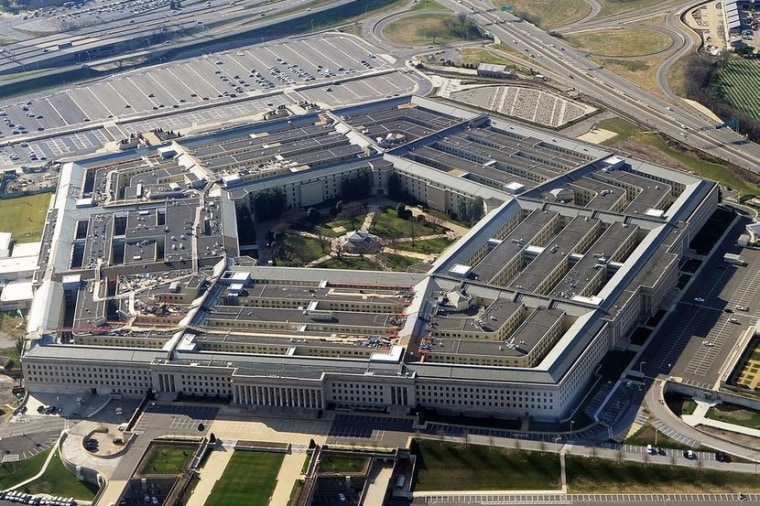On Christmas Day, the White House issued a holiday statement from Donald Trump, which read in part, "To military families who are unable to celebrate Christmas together this year, our Nation humbly thanks you for your service and sacrifice. We are forever indebted to those who courageously serve our country in uniform -- and those who walk alongside them."
There was nothing at all wrong with the sentiment, but the timing could've been better: the president thanked servicemembers two days after the Republican vetoed the bipartisan bill that funds the U.S. military.
As we've discussed, the National Defense Authorization Act (NDAA) is a massive, annual defense spending bill that funds the United States military -- including the money to pay troops' salaries -- but it's not just a spending bill. As NBC News recently explained, the NDAA "guides Pentagon policy and cements decisions about troop levels, new weapons systems and military readiness, military personnel policy and other military goals."
After months of hearings and negotiations, Congress passed a bipartisan NDAA compromise earlier this month, which led to a presidential veto the day before Christmas Eve. Over the weekend, in a strangely worded tweet, Trump tried to defend his position.
"Our $740 defense bill is a gift to China, Russia [and] Big Tech. It fails to terminate the internationally dangerous Section 230, won't allow us to bring our troops back home (where they belong), renames [and] destroys our forts [and] National Monuments, [and] makes 5G almost impossible!"
None of this made a lick of sense, though it's probably worth emphasizing that when the Republican says the defense bill "destroys our forts," he's apparently referring to a provision that would rename military bases named after Confederate military leaders.
Or put another way, Trump defines the word "destroys" in an exceedingly strange way.
Regardless, it's not too surprising the president is struggling to defend his position. Trump has taken an indefensible posture: the Republican has effectively defunded his own country's military because (a) Twitter hurt his feelings, and (b) he's eager to champion the names of those who took up arms against the United States.
If a Democratic president did this, I have a hunch it'd be a significant national scandal, which would leave the Democratic White House's congressional allies in a tough position.
With this in mind, Congress will reconvene this week to vote on whether to override Trump's veto, with a House vote scheduled for today, and a Senate vote scheduled for tomorrow.
For those hoping to see the NDAA become law, there's reason for some optimism: it takes a two-thirds majority to override a veto, and when the Democratic-led House took up the defense bill, it passed 335 to 78. A few days later, the Republican-led Senate followed suit, approving the NDAA, 84 to 13.
If members stick to their positions, the NDAA will become law this week and Trump will suffer the first veto override of his presidency. But what's unclear is just how many congressional Republicans will reverse course and vote against the bipartisan bill simply because the White House wants them to.
Indeed, GOP leaders have indicated a willingness to stick with Trump, even if that means voting against military funding, and members of the right-wing House Freedom Caucus have expressed the same intentions.
If enough Republican lawmakers stick with Trump, the new Congress will have to start over on the NDAA after Joe Biden's presidential inauguration. It would be the first time in six decades federal policymakers failed to pass the annual defense package.
Watch this space.

